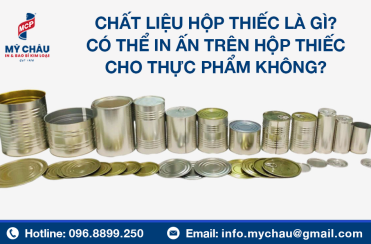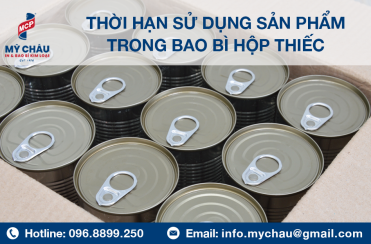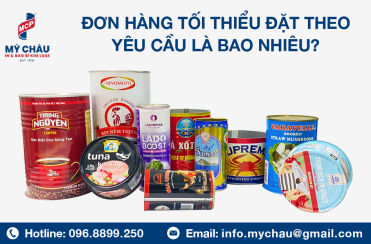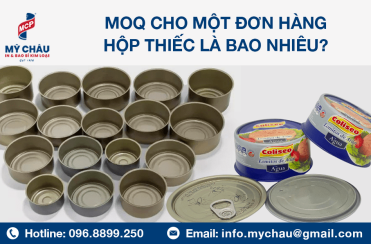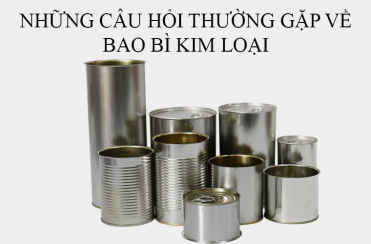Tin box packaging is considered an ideal choice for a wide range of industries, including but not limited to:
-
Canned Foods: A popular option for packaging ready-to-eat meals, preserved foods, sweets, and even beverages.
-
Cosmetics & Beauty Products: Frequently used for premium cosmetics such as skincare creams, lipsticks, eyeshadows, and other beauty essentials.
-
Jewelry: Perfect for storing and displaying fine jewelry, including gold, silver, and other high-end accessories.
-
Household Products: Suitable for packaging small electronics, toys, medical tools, and a variety of household items.
-
Gifts & Promotional Items: Often used to package special gifts, souvenirs, and promotional products.
In summary, tin box packaging offers versatility and flexibility across many industries—from food to cosmetics and household goods—thanks to its safety, durability, and high level of customization.
Tin packaging is especially well-suited for sectors that require strong product protection while also emphasizing market appeal and brand image.

Industries Where Tin Box Packaging Is Commonly Applied
Food & Beverages:
Tin box packaging is ideal for products such as coffee, tea, chocolate, biscuits, canned foods, and many other food items. Its airtight seal and long-term preservation capability play a key role in keeping food fresh and safe.
Cosmetics & Pharmaceuticals:
Tin boxes are often used for premium cosmetics like lipsticks, eyeshadows, perfumes, as well as specialized pharmaceutical products. Their luxurious look and strong preservation ability create a positive impression on consumers.
Luxury, Sports & Collectibles:
Items such as pens, inks, jewelry, or other high-value goods require durable, unique, and high-quality packaging—making tin boxes a perfect fit.
Household Products & Toys:
Tin boxes can also be applied to premium household goods like aroma diffusers, decorative items, or high-end toys.
Agricultural & Livestock Products:
In some cases, tin boxes are used for packaging agricultural produce, organic products, or livestock-related goods that demand strict preservation standards and strong consumer appeal.
Thanks to their customizability and versatility, tin boxes can serve a wide variety of industries depending on product requirements and market positioning.
What Should Be Noted When Storing Beverages in Tin Cans?
To ensure product safety and quality, several important factors should be kept in mind:
-
Temperature & Storage Conditions: Keep beverages in appropriate environments. Some may require refrigeration, while others can be stored at room temperature.
-
Expiration Date: Always follow the printed expiration date. Once opened, consume within the recommended timeframe to ensure safety.
-
Moisture & Light Protection: Avoid exposing tin cans directly to sunlight or high humidity, especially for beverages sensitive to light or moisture.
-
Proper Placement: Store tin cans in safe locations, away from sharp objects or potential falls.
-
Clean Surface Before Opening: Ensure the exterior is clean before opening to prevent dirt from entering the product.
By following these guidelines, beverages in tin cans remain safe, fresh, and of the best quality for consumers.
What Types of Beverages Are Suitable for Tin Cans?
Tin packaging is widely used for many beverages, including:
-
Beer: One of the most common drinks packaged in tin cans, as they protect against light and oxidation, preserving freshness and taste.
-
Soft Drinks & Sodas: Often packaged in tin cans to maintain flavor and ensure an attractive shelf presence.
-
Coffee & Tea: Ground coffee and tea leaves are frequently stored in tin cans to retain aroma and flavor while being protected from light and moisture.
-
Condensed Milk & Fruit Juices: These products benefit from tin cans for freshness, taste preservation, and premium presentation.
-
Mixed & Energy Drinks: Many functional drinks are also packaged in tin cans for both protection and effective display.
This versatility makes tin cans a reliable solution for both preservation and branding across a wide range of beverage products.
Examples of Beverages Commonly Packaged in Tin Cans
-
Beer & Soft Drinks: Widely packaged in tin cans to maintain original taste and protect from sunlight and oxidation, while offering a premium and appealing look.
-
Coffee & Tea: Both ground coffee and tea leaves use tin packaging for maximum freshness and moisture protection.
-
Condensed Milk & Canned Juices: These drinks maintain their original taste and freshness while gaining an upscale presentation.
With these examples, it’s clear that tin packaging delivers quality preservation and strong market appeal, making it a preferred choice for many beverage brands.

